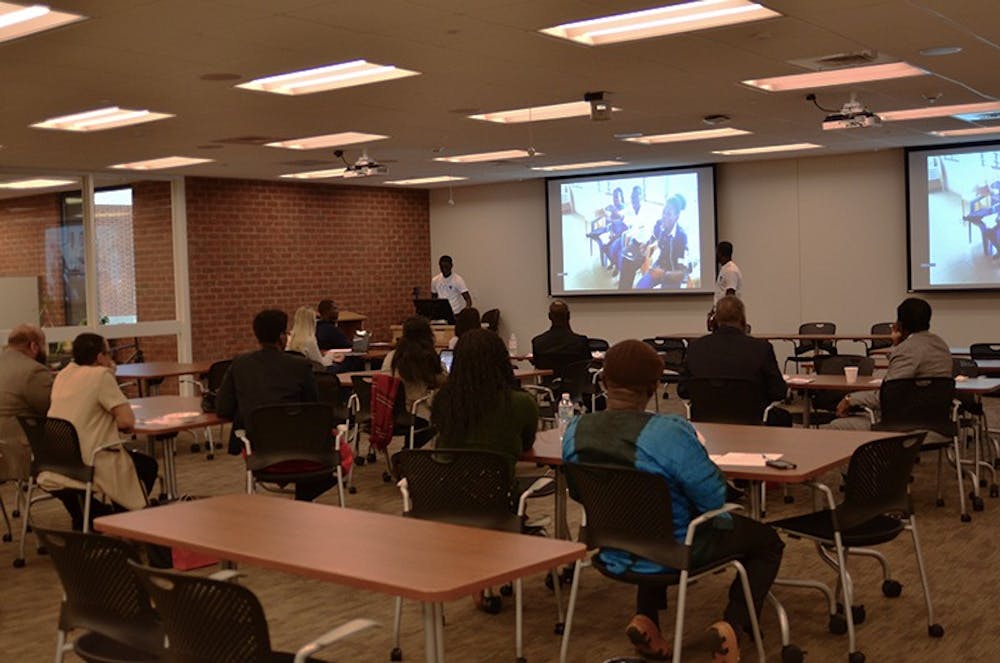The student-led project “21st Century Citizens Initiative” presented the outcomes of their first venture titled “The Winneba Project” and discussed future endeavors Thursday.
The founders of the initiative — Education graduate Akwasi Asante, College graduate Kelvin Wiredu and fourth-year Batten student Emmanuel Agyemang — traveled to the University of Education in Winneba, Ghana, last summer to work with students to cultivate their civic skills in a series of civic engagement workshops.
The organization received University support, including grants from the Raven Fellowship, the Office of Diversity and Equity and the Buckner W. Clay Endowment for the Humanities.
Associate Deans Kimberly Bassett and Dr. Patrice Grimes of the Office of African-American Affairs and Dr. Marcus Martin, vice president and chief officer for diversity and equity, also lent support.
As Ghana natives, Asante, Wiredu and Agyemang said they were inspired to support their home country in a meaningful way, Asante said.
“It says a lot when you’ve succeeded and are able to lift others up with you back home,” Asante said.
The Winneba project focused on education, health, technology and governance initiatives. Through facilitated discussions on civic engagement, Ghanaian students were given opportunities to learn and challenge one another while discussing the role of youth in Ghana’s development.
The program’s emphasis on digital literacy encouraged students to leverage media platforms to communicate with key stakeholders as a form of civic engagement, Asante said.
“We wanted them to use the online space to communicate effectively their opinions and their thoughts on issues” he said.
The organization’s endeavor was met with cultural, environmental and infrastructural challenges, including intercultural communication and sporadic power outages.
Despite these obstacles, the group produced three different project proposals to increase literacy in Ghana and attracted media attention from publications GH Scientific and Blogging Ghana.
The CCI initiative is acting as an preliminary response to barriers facing youth civic engagement, Agyemang said.
“In some social settings in Ghana there really is a necessity for a program like this to go and really act as a spark for some of these initiatives to come about,” Agyemang said.
The Winneba Project plays an integral role in CCI becoming a larger organization, Astante said.
“Ghana is our pilot country, we hope to venture out into other countries and other communities as well,” said Asante.
The project also served as a test of the efficacy of different strategies which can be used going forward, Wiredu said.
“We learned that to have digital civic engagement, you really needed to have good on-ground civic engagement where people are actually having civic dialogue on-ground,” he said.
Read this article translated into Chinese here.







